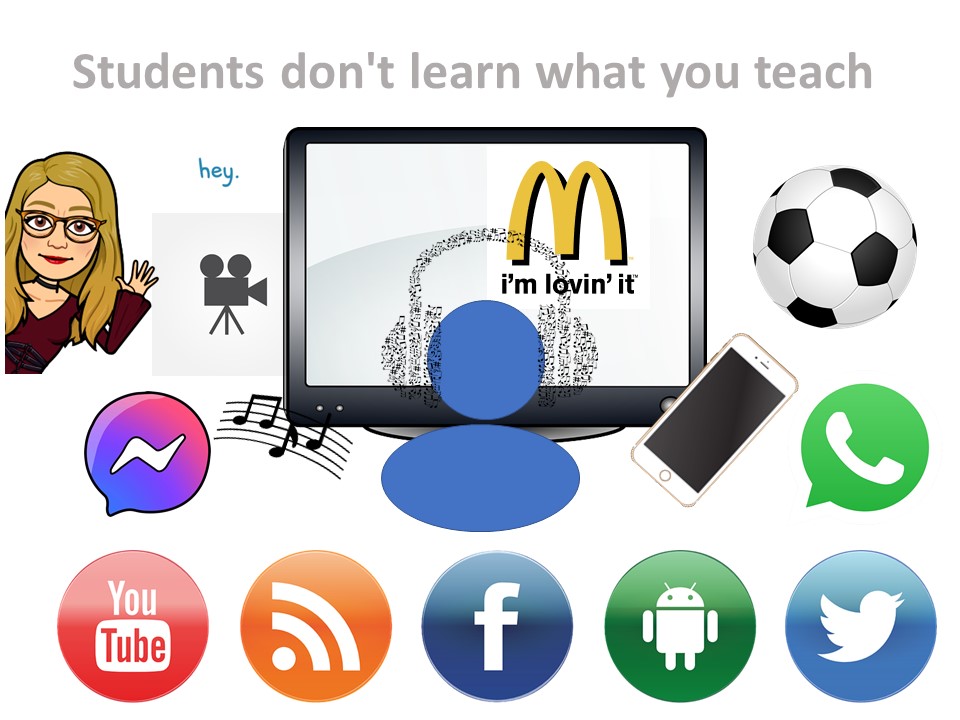After 40 years of teaching, I have retired from the classroom with many lovely memories, a few embarrassing regrets, and loads of acquired insight into what teaching is really about.
In short snippets, I am sharing some of these insights with you throughout the coming weeks. This is #2.
Students don’t learn what you teach – they learn much more
A long time ago, sometime in the last century, I attended a lecture given by an English language guru at the time. She had made a neat teaching syllabus that other teachers wanted to copy. In her lecture, she told a story of how her students in 6th grade had played a little sketch in the classroom and used a word or language structure she hadn’t yet taught them. She had been astonished.
That’s when I decided not to copy her ideas. For me, it was clear that no teacher could ever control any student’s mind. However clearcut plans and goals the teacher might make about what the students are supposed to know after a lesson, they will never hold. Each student has a brain of their own. Each brain has its own level of understanding, depending on prior knowledge and experiences, state of mind, and level of awareness.
And most importantly, each brain has its own set of synapses that connect in billions of different ways at each given moment. Any teacher pretending to be in control of those synapses is way out. Any teacher trying to limit their classroom instruction into tiny bits of language that they could later test the students with is also way out.
However, we language teachers are lucky, because “We are born to acquire language. That’s the way our brains are.” (S Krashen)
In Sweden, our students cannot resist hearing, and even reading English all around them, daily. They learn naturally a lot more than what we can try to teach them in a couple of hours every week at school.
That’s why I often started with a new class by telling them that I was not going to teach them the language – because I couldn’t. Their brains would have to do the learning for them. Our few lessons would never be enough, nor would I be able to control their brains enough to poor the language into them. Their learning would only happen if they wanted to let their brains absorb the language through the activities I was going to guide them with, in addition to all the language around them in our society.
How I have been working with this notion ever since will be discussed in the coming blog posts.

